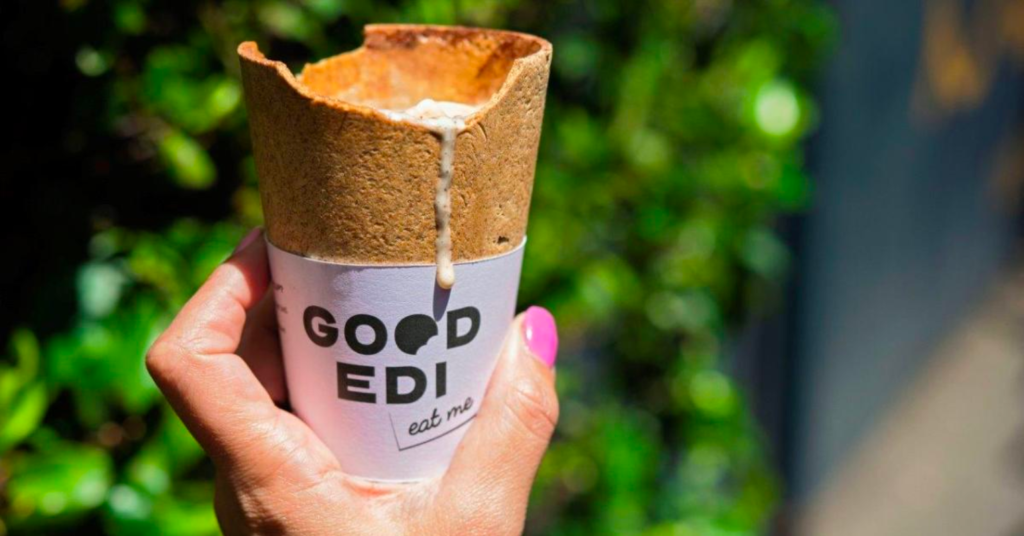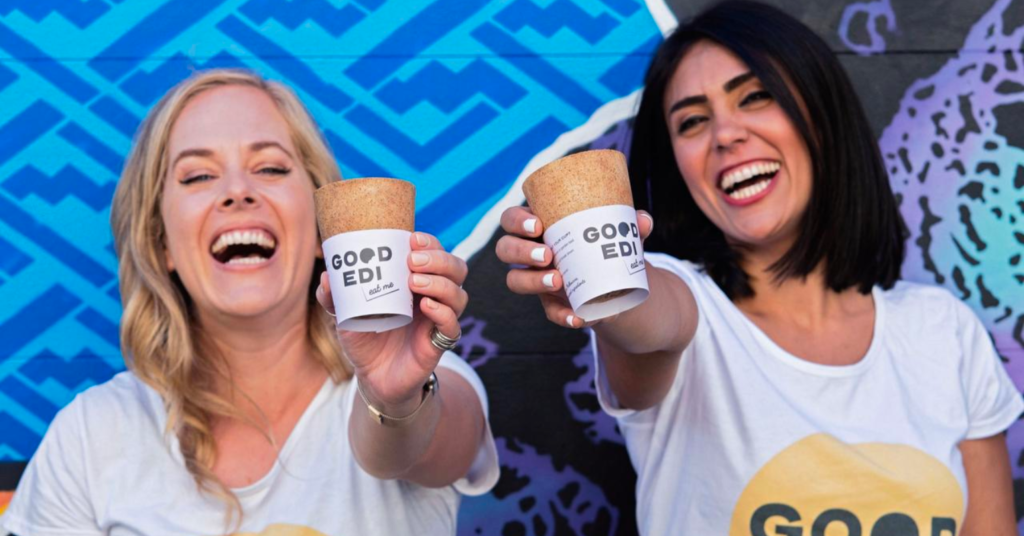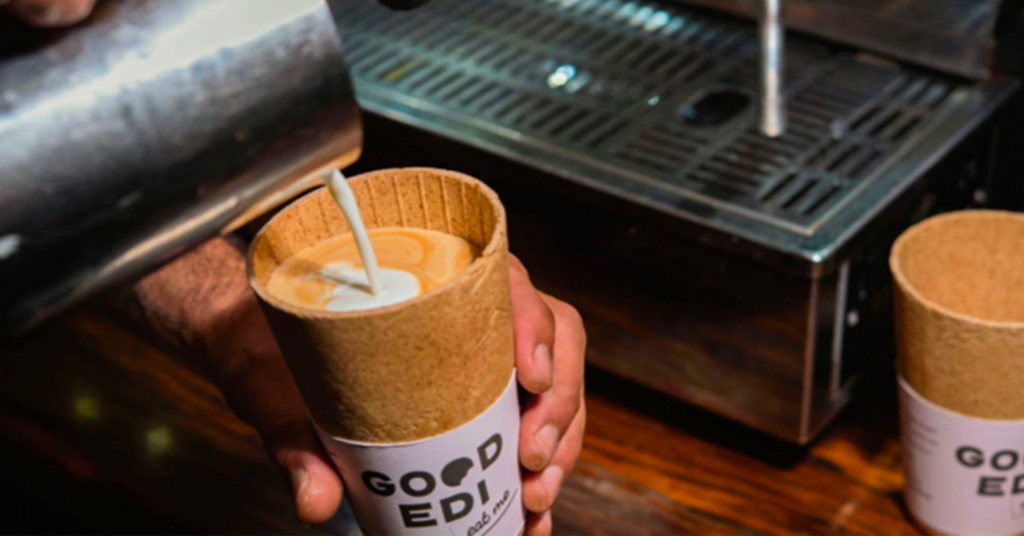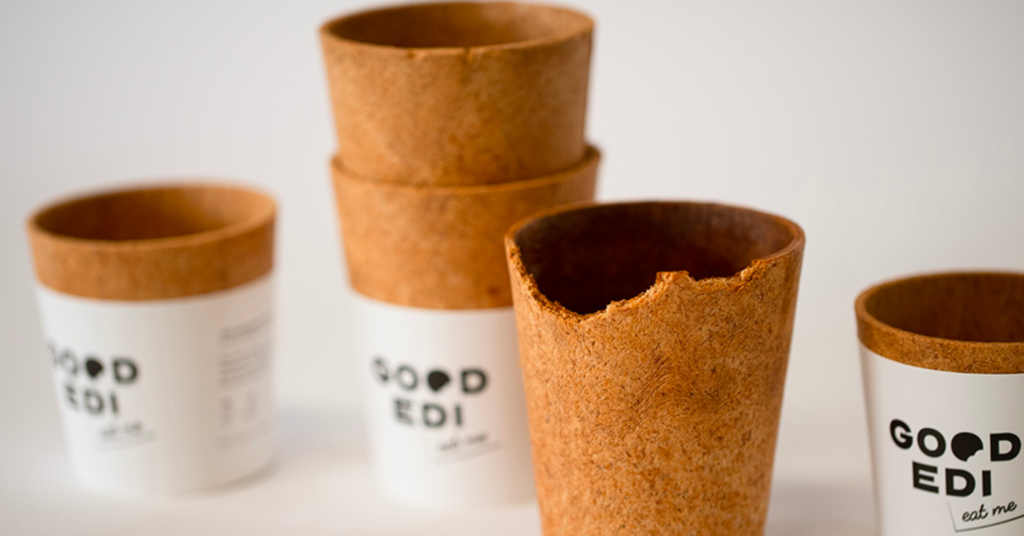Imagine a world without overflowing trash cans of disposable cups. That’s the vision behind Good-Edi, an edible, biodegradable, and plastic-free to-go cup.

We’ve all seen the overflowing trash cans filled with disposable drink cups outside cafes and fast-food joints. It’s a disheartening sight that reminds us of the enormous waste generated by our on-the-go culture.
But in the bustling streets of Melbourne, two colleagues, Aniyo Rahebi and Catherine Hutchins, decided to take action.
Their determination led to the birth of Good-Edi, a startup offering an innovative solution: an edible, biodegradable, and plastic-free alternative to traditional paper cups.
From Concept to Reality:
With a clear vision in mind, Rahebi and Hutchins embarked on their entrepreneurial journey. Good-Edi raised approximately $98,000 through a successful crowdfunding campaign in 2021, enabling them to establish their startup. Their baking team, located in a Melbourne suburb, now produces around 500 edible cups daily, catering to coffee shops, roasteries, and concert venues across Australia.

Taking on the Global Waste Crisis:
The magnitude of the waste crisis surrounding disposable cups is staggering. According to the United Nations Environment Programme, over 250 billion plastic-lined paper cups are used worldwide every year, with a meager 1% being recycled. In Australia alone, approximately 2.7 million cups end up in landfills daily. Good-Edi’s solution aims to tackle this issue head-on.
A Versatile Solution for Hot and Cold Beverages:
Good-Edi’s innovative product offers a versatile solution for both hot and cold drinks. After countless recipe adjustments, Rahebi and Hutchins settled on a unique blend of rye flour, wheat bran, oat bran, sugar, salt, coconut oil, and water. Their edible cups maintain their crispiness, keeping a hot cup of joe enjoyable for up to 40 minutes, while also preventing any leakage for approximately eight hours when holding cold beverages.

From Side Hustle to Global Impact:
Although Good-Edi is currently a side hustle for Rahebi and Hutchins, who boast a combined 20 years of experience in the food-processing and packaging sectors, they have high aspirations. They anticipate a shift in consumer sentiment towards sustainable alternatives and an increased demand for eco-friendly to-go options. While their containers may slightly raise the cost of a cup of takeaway coffee by A$1, they firmly believe that the positive impact on the environment is well worth it.

Expanding Horizons:
The team at Good-Edi has ambitious plans for the future. They aim to ramp up production and expand their sales internationally this year, seeking to make their edible cups a global phenomenon. By doing so, they hope to significantly reduce the environmental footprint of the beverage industry and encourage other businesses to follow suit.